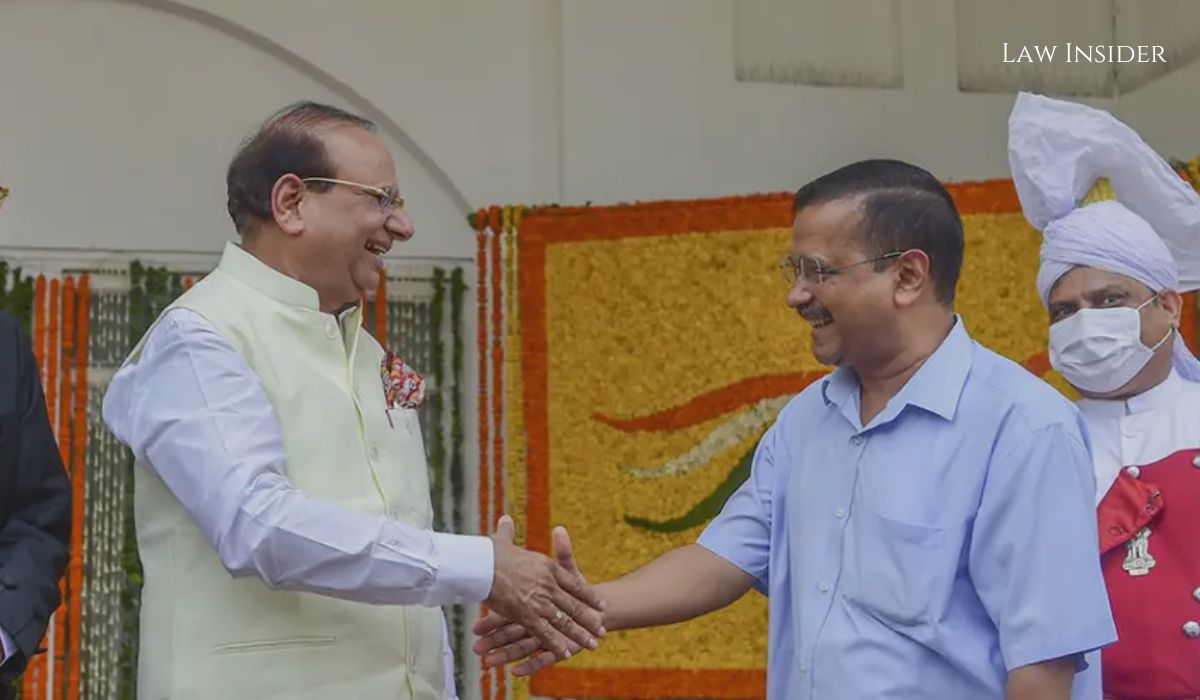Prerna Gala
Published on: September 7, 2022 at 16:35 IST
The Constitution bench considering the dispute between the Central and Delhi governments will be a “full green bench,” according to the Supreme Court, which means that the bench won’t use any physical papers, documents, or pleadings.
When scheduling the case for hearing on September 27 in open court on Wednesday, the bench presided over by Justice DY Chandrachud stated thus.
“The secretary and the IT head said that they are willing to train the seniors on how to use technology on Saturdays. But please do not keep papers in this court. So apart from hearing, please let us know if you all need the training, we will organise this,” the judge said.
In this matter, don’t distribute any paper compilations. The bench said, “We can have a training in the conference room at SC on Saturdays.”
“We also got training (to a hesitant counsel). It has to start some time,” Justice MR Shah weighed in.
On September 27, the Court issued an order listing the case for directions.
“In the meantime it is anticipated that proceedings before Chief Justice of India-led constitution bench likely to conclude. In case the hearing in CJI court spills over this case will be listed on October 11,” the Court clarified.
Justice DY Chandrachud said, “The secretary and the IT head said that they are willing to train the seniors on how to use technology on Saturdays. But please do not keep papers in this court,”
The argument between the Central and Delhi governments on whose authority has administrative control over the transfers and postings of officials in Delhi is being heard by a bench that also includes Justices Krishna Murari, Hima Kohli, and PS Narasimha.
According to the Delhi government’s argument, the important bureaucrats and officers are still carrying out the Central government’s directives through the Lieutenant Governor, despite the fact that the elected government of Delhi has been barred by the Central government from exercising any administrative control over them (LG).
Article 239AA of the Constitution, which has specific provisions pertaining to the National Capital Territory, was construed by a Constitution Bench of the Supreme Court in 2018.
In the case, there was discussion over the distinctive status of the NCT, the authority of the Delhi Legislative Assembly, the LG, and how those powers interacted.
In that decision, the Court had stated that the LG must cooperate with the NCT government and cannot act unilaterally without the support and counsel of the Council of Ministers.
The appeals pertaining to specific elements, such as services, were subsequently brought before a normal Bench for decision-making based on the ruling of the Constitution Bench.
On April 14, 2019, the regular bench delivered its ruling on a number of particular issues pertaining to the dispute between the Delhi government and the LG.
Justices AK Sikri and Ashok Bhushan, the two judges on the bench, had disagreed on the topic of “services” under Schedule VII, List II, Entry 41 of the Indian Constitution.
The Court was asked to decide whether it was constitutionally and legally correct for “services” related to Entry 41 of List II of the Seventh Schedule to be excluded from the legislative and executive authority of the NCT of Delhi by a notice issued by the Government of India on May 21, 2015.
Due to the differences between the judges on the bench, the issue was sent to a larger bench and was heard by a three-judge bench.
At the request of the Center, the three-judge bench then referred the case to the Constitution Bench.
The Constitution Bench’s majority judgement did not take into account the purpose and intent of the expression “insofar as any such matter is applicable to Union Territories” as it appears in Article 239AA(3) of the Constitution, which is the central and important aspect of the said provision, which was the main justification for the request to refer the case to a five-judge bench.

